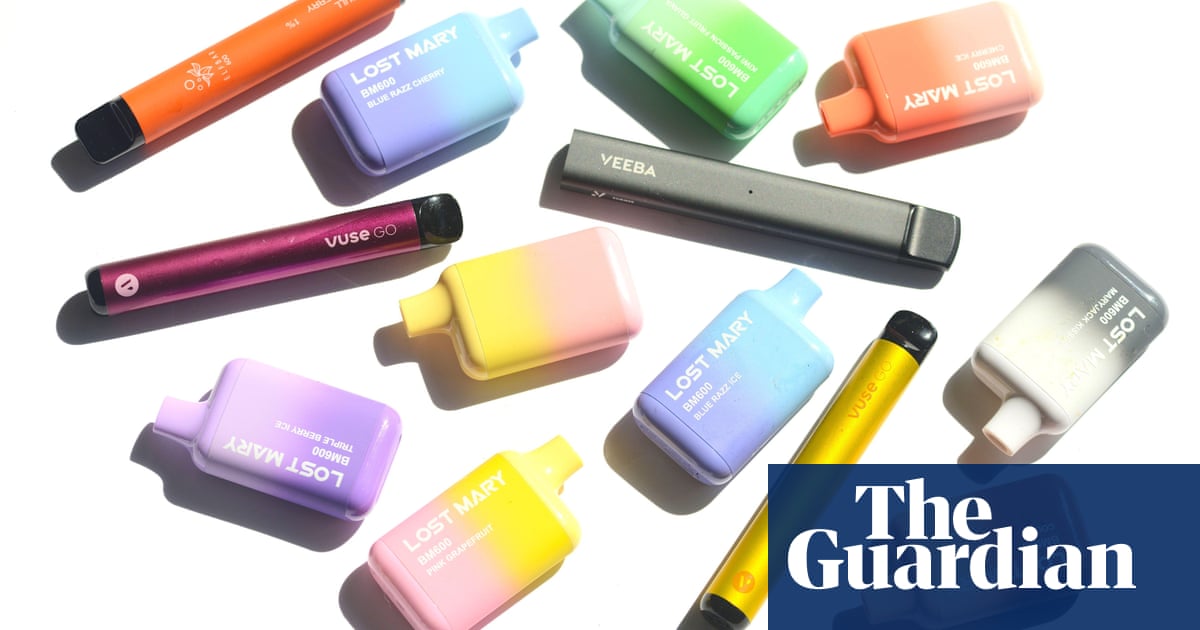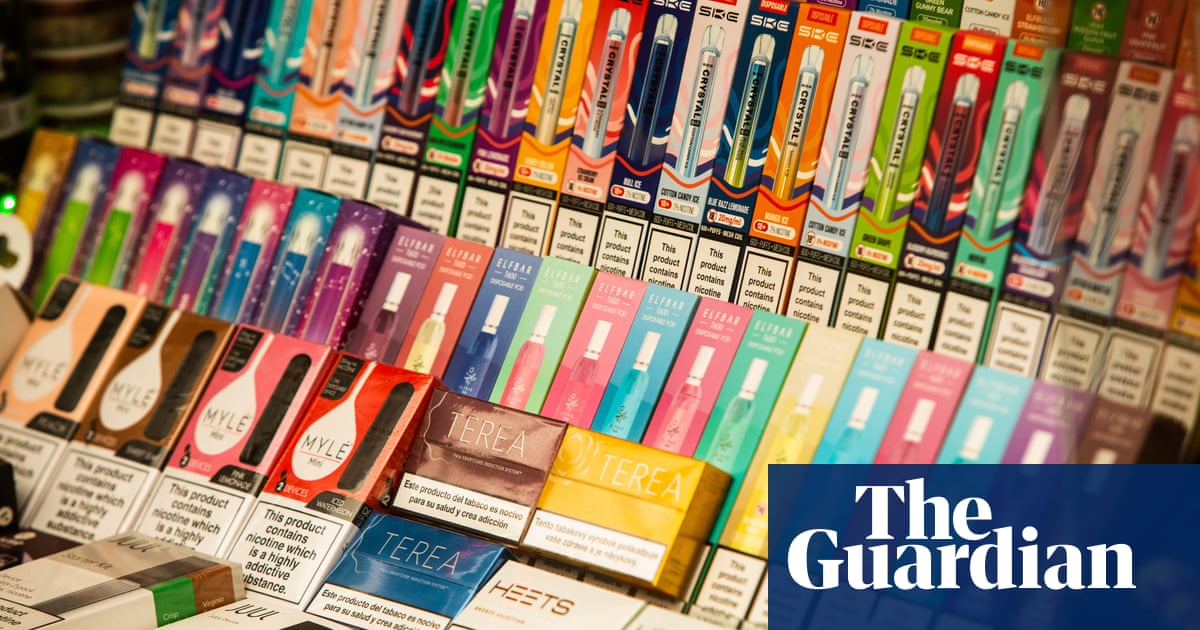
Disposable vapes are increasingly causing fires in bin lorries and recycling issues at a “great cost” to the taxpayer, councils have said.
The Local Government Association, which represents councils in England and Wales, said single-use vapes such as Elf bars, Lost Mary and Juul were almost impossible to recycle. They are designed as one unit so batteries cannot be separated from the plastic.
The organisation said the lithium batteries inside the plastic can sharply increase in temperature if crushed and can become flammable. This costs taxpayers money through fire damage to equipment and the specialist treatment needed to deal with hazardous waste.
Last year, research by Material Focus – a non-profit organisation which runs the Recycle Your Electricals campaign – found that about 1.3m single-use vapes are thrown away each week in the UK – an extraordinary rise since the first was sold in 2019. Their work found that more than 700 fires in bin lorries and recycling centres were caused by batteries that had been dumped into general waste.
Last month, recycling firms said they were dealing with so many vapes that they were struggling to insure their facilities. Some are using artificial intelligence to detect vapes, as well as installing thermal imaging cameras and automatic foam jets.
The warning comes days after children’s doctors called for an outright ban on disposable vapes to reduce their popularity among young people as the long-term impact remains unknown.
Dr Mike McKean, the RCPH vice-president and a paediatric respiratory consultant, said the college had made a “very carefully considered call”, amid concern from its members about an “epidemic” of child vaping. It was noted that a small but growing number of children were experiencing respiratory problems.
The children’s commissioner for England, Rachel de Souza, urged ministers to crack down on the “insidious” marketing of vapes to young people. She said the government would be “failing a generation” if these “highly addictive and sometimes dangerous products” were allowed to become mainstream.
While the LGA did not go as far as calling for a ban on disposable vapes, it said retailers and producers of these products should take responsibility for the litter they create.
Councillor Linda Taylor, the LGA’s environment spokesperson, said: “Single-use vapes, just like any other item of hazardous waste, need to be properly classified and producers must take responsibility for the litter they create.
“The volume of these items that council waste teams are handling is increasing, and this is coming at a great cost to the council taxpayer.
“We need a crackdown on the producers and retailers of these products, and to get this litter under control.”
Councils are calling for the Environment Agency to proactively enforce retailer duties on paying into a producer compliance scheme and reform of the producer responsibility scheme.
E-cigarettes are classified as “toys, leisure and sports equipment” that councils say does not reflect the harm of the material or cost of collection. The government should also look at ways to encourage take-back of vapes through a deposit return scheme funded by producers, the LGA has argued.
Vaping has risen rapidly over the past decade, with an estimated 4.3 million people now using these products, according to a report from Action on Smoking and Health (Ash). The data suggests 8.3% of adults in England, Wales and Scotland vape, up from 1.7% a decade ago, which equated to about 800,000 people.
A Defra spokesperson said: “All electrical waste should be properly disposed of and recycled to protect our environment – this includes disposable vape pens.
“Our environmental improvement plan sets out our plan to review rules for waste electricals this year. As part of this, we will consider what changes in legislation are needed to ensure the vaping sector foots the bill for the collection and treatment of their used products.”












